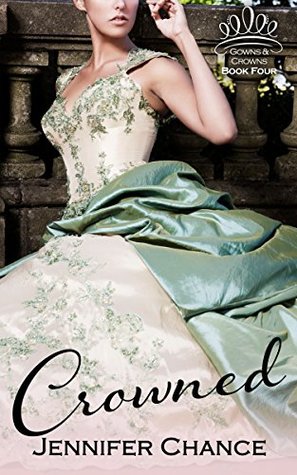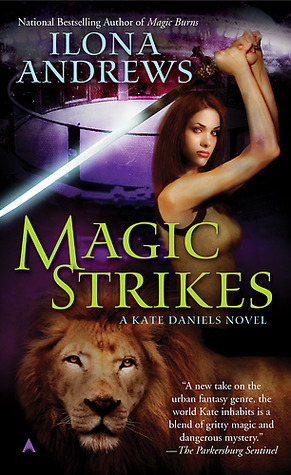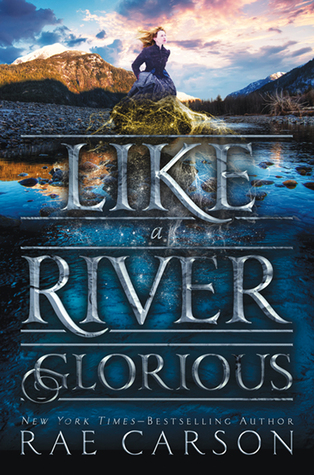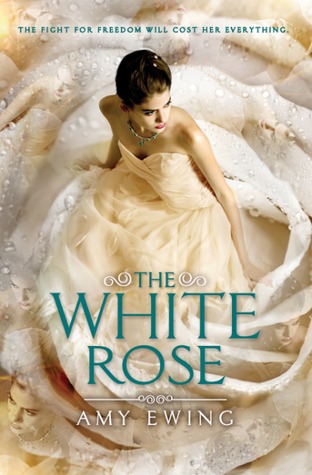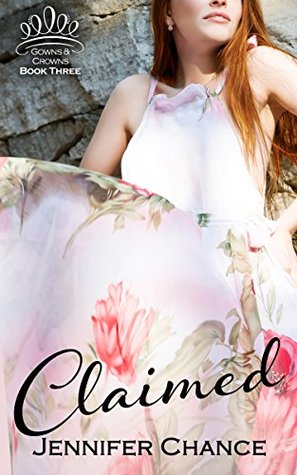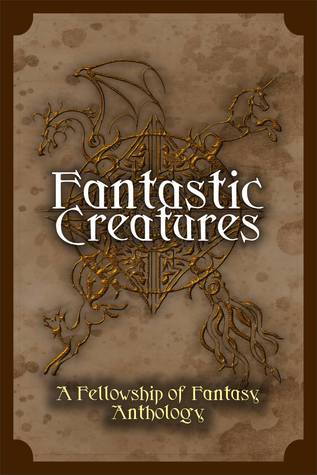 Fantastic Creatures
Fantastic Creatures is an anthology of stories all featuring some (you guessed it) fantasy creature, from mermaids to werewolves to tree octopuses to hum fairies. As an anthology, it has many, many authors, but I'm putting H. L. Burke as the primary because, from what I can see, she appears to be the one who organized it, did the outreach, etc. (If someone knows differently, please let me know and I'll correct this.) I'll include the author of each individual story with my description below. Because of the nature of this book, I've done a short description or comment of each story with an individual rating for each, and the overall rating is an average of those.
But before I dive into the individual stories, a few overall comments about the book. This an anthology by indie authors, and it shows. While some stories are amazing, others need some work with plot structuring or even some light line editing. The reading level also varies; while I would say most of these stories are perfectly enjoyable for an adult audience, there were a couple that I felt were meant for eight-to-ten-year-olds instead, giving the collection an uneven feel in regards to reading level. "Three Steaks and a Box of Chocolates," "Seekers," "Skin Deep," "Priscilla the Magnificent, Flying Giant Squid," "Mother's Night Out," and "Absolutely True Facts about the Pacific Tree Octopus" were definitely the strongest stories in this volume, while "The Golden City Captives," "The Last Chronicle of Pete Mersill," and "Talori and the Shark" were probably the weakest, for various reasons. Still, with a few exceptions I really liked this overall. Now, for the individual ratings!
"Three Steaks and a Box of Chocolates" by A. R. Silverberry - A very good start to the collection featuring a Loch Ness Monster-type creature in a dying town. The writing here reminded me of
What the World Will Look Like When All the Water Leaves Us, a gorgeous short story collection by Lauren van den Berg that all feature subtle elements of the supernatural. This one was actually a bit short for my tastes; I would have
loved to have seen this fleshed out a little bit more! 4 stars out of 5.
"Snapdragon" by Lea Doue - This was okay. It's a pretty basic Princess and the Frog story, except the frog is a miniature dragon. It had some nice fantasy elements--girls with a poison touch or thorns growing from their skins--but those felt more like changing the wallpaper on the story rather than doing anything really innovative. 3 stars.
"The Golden City Captives" by Julie C. Gilbert - Not a huge fan of this. The reading level was much lower than that of the rest of the book and the story itself seemed to be missing a lot of background logic that could have made even a lower-reading-level story feel more appropriate for this collection. 2 stars.
"Seekers" by Intisar Khanani - This was the reason I requested an ARC of this book! I love Khanani. This is a lovely short story about a little girl and her mother who play at finding things, until one day the mother finds something that takes her away. It has a beautiful sense of place and fantasy without ever explicitly saying anything, which I loved. 5 stars.
"Mystery of Asgina Lake" by Caren Rich - This was a solid story regarding plot and structure and characters but it needed some work regarding grammar, particularly comma usage. 3 stars.
"Skin Deep" by Morgan Smith - This was my favorite story in the collection. It was beautifully, classically written, and while I'm not sure of how far the adaptation strayed from the original, the source story is apparently a Scandinavian story, which I think was a great addition to the collection as a whole. 5 stars.
"The Last Chronicle of Pete Mersill" by Cave Yates - This is a semi-post-apocalyptic story which stood out for that reason. The writing style actually somewhat reminded me of that of the middle portion of
Cloud Atlas, but without the confusing linguistic shift, and I was really enjoying it until the villains started monologue-ing, which dragged it down immensely for me. 3 stars.
"Priscilla the Magnificent, Flying Giant Squid" by L. Palmer - Another great story! This is the only steampunk-inspired story in the collection which made it stand out. It also has a sentient giant squid who learned Morse code from mermaids and wants to fly. Absolutely charming. 4 stars.
"An Adventurer's Heart" by Nicole Zoltack - This was another one that didn't sit right for me. I thought, at points, that this might end up being a story with a moral, like that revenge doesn't really work out and that people always have reasons for doing what they do, even if we at first can't see them. Instead it was ultimately just a story about a girl who wants revenge on a creature going around and cutting other creatures' heads off in preparation. 2 stars.
"Destiny's Flight" by Frank B. Luke - This was a pretty typical fantasy story that had a religious bend. That's not bad on its own, and I did like how it featured a more diverse cast of characters, at least culturally, but it got a bit preachy at the end. 2.5 stars.
"The Kappa" by Lelia Rose Foreman - This story was a great example of how a child can be a main character without the story actually being juvenile. The setting and feel were again unique, which I appreciated, but I was left a little confused at the end, about who/what the cat was and why he had authority. 3 stars.
"Celebration" by Arthur Daigle - A story with humorous elements in which a bunch of goblins give a king a proper send-off. At the beginning of this story, I thought it was going somewhere maybe a tad gruesome, but this was ultimately a very touching story that I enjoyed. 4 stars.
"The Nether Lands" by Cave Yates - This is Yates' second story in the collection and I think it was stronger than the first. It features a demon hunter on a mission in the Netherlands who ends up partnered with a demon, and their attempts to avoid the "nether lands" where demons can trap people. This was one of the more adult stories in the collection, with some definite violence and sexual tension going on. 4 stars.
"Talori and the Shark" by Jessica L. Elliot - One of the weaker stories here. It's like Beauty and the Beast, but with mermaids, and it was a story in which I found internal logic really missing. That's one of my biggest pet peeves, and it drove me absolutely crazy here. Elliot tries to explain this away by saying "oh, it's magic, and magic doesn't work on logic," but it
does, it just works on its own logic that the author determines, and not doing that here made this seem like a lazy story. The writing also didn't appeal to me. 1.5 stars out of 5.
"Reviving the Sword" by Kandi J. Wyatt - A centaur with a would-be-magic sword travels with an elf and a gryphon. There was some promising language here and the assortment of creatures in the band was interesting, but the story itself was overall unremarkable. 2.5 stars.
"Mother's Night Out" by D. G. Driver - Okay, this should really be "Mothers' Night Out" to be grammatically correct. Now that that's off my chest, I can say that this was a strong story! It was another of the more violent ones, and it has this sense of menace to it the whole time even though the main characters are in a nursery dealing with babies. 4 stars.
"The Mage and the Spotted Wyvern" by Craig J. Price, Jr. - A pretty typical, rather unremarkable sword-and-sorcery story about a young mage trying to learn magic. But Freckles the frog was cool. 3 stars.
"The Very Last Dragon" by Katy Huth Jones - This was another story with some humorous elements, and the language here had a very bedtime-story feel without feeling like it was for eight-year-olds to read, if that makes sense. But honestly, Golda Drake? Our hero didn't see that coming? Please. 3.5 stars.
"The Adventures of Zero: The Quest for Wormsroot" by Vincent Trigili - This is basically what "The Secret Life of Walter Mitty" would be like if it was about a teenager in a fantasy setting. A boy who daydreams of adventures actually ends up going on one. It was fine. 3 stars.
"Ishka's Garden" by Bokerah Brumley - This was another story that seemed to be missing some background information. I found everything that was hinted at here so much more intriguing than the story itself. 3 stars out of 5.
"Absolutely True Facts about the Pacific Tree Octopus" by H. L. Burke - This was another story that screamed "charming" to me, and another good one about a child that isn't actually juvenile. It also had a good lesson attached and was a strong note to end the collection on. 4 stars.
So, when all of that is accounted for, it gives the collection as a whole a rating of 3.14 stars. There are definitely some very strong stories here, and I think the collection as a whole was worth it, but there were a few weak ones that really dragged the stronger ones down, which is unfortunate. Dropping the lowest-rated one here bumps the collection up to a 3.6, and I think that's more in line with the true value here.
I received a free advanced copy of this book; all opinions are my own.
 The Trespasser was my Book of the Month choice for November. Book of the Month tends to stay away from series selections in general, but there have been a few that appeared in the time I've been subscribed; The Trespasser is one of them. It's the sixth book in French's Dublin Murder Squad series, though it can definitely be read as a stand-alone book, which I suppose justifies its inclusion.
The Trespasser was my Book of the Month choice for November. Book of the Month tends to stay away from series selections in general, but there have been a few that appeared in the time I've been subscribed; The Trespasser is one of them. It's the sixth book in French's Dublin Murder Squad series, though it can definitely be read as a stand-alone book, which I suppose justifies its inclusion.